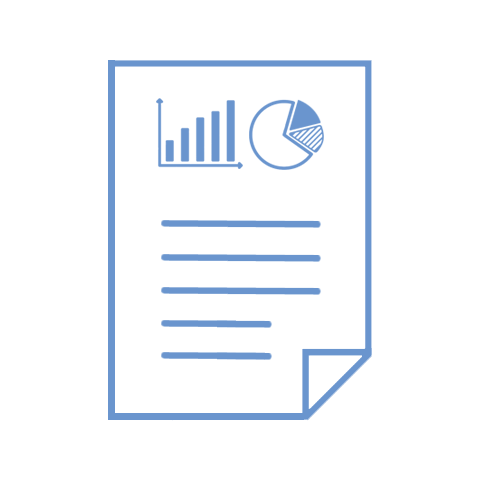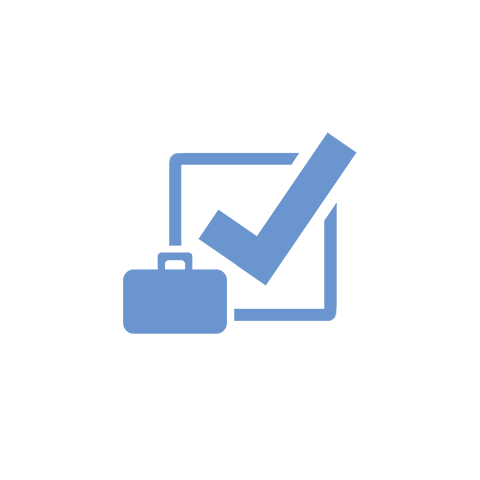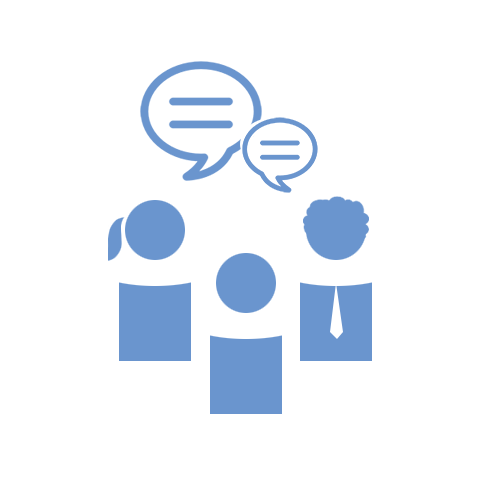EA Newsletter: December 2, 2016

Happy holidays!
Winter is coming... Get out your ugly sweaters and cosy socks, and start warming up for Giving Season!
Since many of your friends, colleagues and relatives will be making end-of-year donations, now is a good time to bother them about effective giving at the lunch or dinner table. Or you could just send them this Vox article on how to pick a charity.
Three EA organizations have updated charity recommendations (see below). Giving What We Can has also just launched their annual pledge drive while 80,000 Hours is carrying out their annual impact survey.
The Team
PS: New to EA? Check out this introduction .
Articles and community posts
Peter Hurford shares a process for how to make a good decision and walks you through a few examples, including picking a TV show to watch with friends. (Good choice there with “Black Mirror” we say!)
GiveDirectly recently launched GDLive , a really interesting way of sharing unfiltered and unedited updates from the recipients of cash transfers themselves. Find out more about how participants opt in to GDLive and why these kinds of stories are not the opposite of data.
Quartz asked Peter Singer whether it’s ethical to work for the Trump administration. He says, take the job. Find out why .
ClearerThinking.org has just released a new, free tool called Leaving Your Mark on the World . It teaches 5 principles of how to improve the world effectively and automatically assists you in selecting your next action to get started down that path. Do check out their other tools too!
Leah Edgerton from Animal Charity Evaluators shares two effective ways for people to volunteer remotely for animal welfare.
Prioritization researcher Owen Cotton-Barratt explains why he’s donating to MIRI this year (this post is for people already familiar with their work). More explanations of this sort are welcome!

Spotlight: What the EA community can learn from the rise of the neoliberals
“The ideas of economists and political philosophers, both when they are right and when they are wrong, are more powerful than is commonly understood. Indeed the world is ruled by little else.” – John Maynard Keynes
Neoliberalism was a movement in economics and the social sciences that promoted laissez-faire economic liberalism and rejected socialist economic principles. Neoliberalism rose from a fringe ideology to shaping the policy agenda of the most powerful countries in the world over a period of forty years.
During the 1950s and 60s they were “a scorned, dismissed, heretical minority.” Yet a mere 20-30 years later the movement had launched 400 think tanks across 70 countries and had directly influenced the policies of the United States (via Reagan), the UK (via Thatcher), and influenced the liberalization of China under Deng Xiaoping.
In this article Kerry Vaughan outlines the history of neoliberalism, the strategies and tactics they employed and what EA community builders might be able to learn from their rapid ascendency to power.

Updates from EA Organizations
80,000 Hours
80,000 Hours made their targets grow 3-fold over 2016 – from 50 plan changes per month to 160. See their full updates here.
Animal Charity Evaluators
ACE released their 2016 charity evaluations . The Good Food Institute, The Humane League, and Mercy For Animals are this year’s Top Charities, and they currently recognize 10 Standout Charities. ACE also held their first Symposium on Multidisciplinary Research in Effective Animal Advocacy this month at Princeton University. Recordings of the talks will be available soon.
Centre for Effective Altruism
CEA had an overwhelming response to their Doing Good Better giveaway. You can still nominate friends to receive free copies of the book but there may be some delay as they sold out Amazon US!
Future of Humanity Institute
FHI researchers were prominently featured at EAGx Oxford, including keynote talks by Owen Cotton-Barratt and Toby Ord, and a workshop on AI safety by Owain Evans and Jan Leike. FHI’s nascent work on existential risk in biotechnology also continues, with FHI co-hosting a biotech horizon scanning exercise with CSER and Piers Millett contributing to discussions at the Biological Weapons Convention in Geneva.
GiveWell
GiveWell announced their updated list of charity recommendations for the 2016 giving season. GiveWell now recommends seven top charities: Against Malaria Foundation, Schistosomiasis Control Initiative, Deworm the World Initiative (led by Evidence Action), END Fund, Sightsavers, Malaria Consortium, and GiveDirectly. Read more about GiveWell's updated recommendations here and donate here.
.impact
.impact just launched their Season's Givings Winter Fundraiser for GiveDirectly, SCI, Mercy For Animals, Cool Earth and Project Healthy Children. Sacrifice an aesthetically questionable sweater or your 7th pair of slipper socks – and save lives instead. Over the last four campaigns, these online fundraisers have counterfactually generated ~$200,000 for effective charities. Sign up at seasonsgivings.org this week!
Machine Intelligence Research Institute
MIRI’s annual fundraiser fell short of its goal by $160,000, with the result that they may not be able to scale up their AI safety research staff as fast as planned. MIRI is soliciting end-of-the-year donations in a push to close this gap and move forward on their 2017 plans (details here).
Open Philanthropy Project
The Open Philanthropy Project announced two grants in biosecurity: $643,415 to Stanford University’s Center for International Security and Cooperation (CISAC) to support Megan Palmer’s work and $1,300,000 to the Blue Ribbon Study Panel on Biodefense . The Open Philanthropy Project also announced a $100,000 grant to Fórum Nacional de Proteção e Defesa Animal to support international cage-free advocacy.
The Life You Can Save
The Life You Can Save just published their list of 2017 Best Charities, arrived at using their new charity selection process. Village Enterprise is a new recommendation this year.
Jobs
- Research Associate at Animal Charity Evaluators
- Summer Research Fellow at the Centre for Effective Altruism
- Postdoctoral researcher at the Centre for Human-Compatible AI in Berkeley
- Operations Manager at the Effective Altruism Foundation
- Internships in AI safety at the Future of Humanity Institute
- Various positions at GiveWell (incl. Senior Fellow and Senior Research Analyst)
- Research Associate at the Leverhulme Centre for the Future of Intelligence
- Remote Positions at New Incentives (incl. Statistics Intern and writing your MA thesis with them)
Announcements
80,000 Hours
Has 80,000 Hours helped your career? Fill out their short survey to both help with their research and help ensure that they will be around for many, many years to come:
https://80000hours.org/impact-survey/
Charity Science: Health
Charity Science: Health, a recent recipient of a $200,000 grant from Good Ventures , is looking for volunteers. If you have three hours a week or more to spare and would be interested in doing research or logistics support to help them out, please fill out this form.
Giving What We Can
Giving What We Can just launched their annual pledge drive and you can support them by clicking "going" in this Facebook event and inviting your friends to it. And if you've been thinking about pledging 10% of your income to help others, this is a particularly good opportunity to post questions and hear from the Giving What We Can community about their experiences.
Timeless Classics
“Every time we hear about some kind of altruistic endeavour, we automatically think, 'But is that really effective?'. This also happens when we talk to each other about our plans.” Jess Whittlestone on the importance of being both skeptical and kind.
Go forth and do the most good!
Let us know how you liked this edition and how we can improve further.
If you’re interested in past editions of this newsletter, here is the full archive
Get Involved in Effective Altruism
The Effective Altruism Newsletter is a joint project between the Centre for Effective Altruism, the Effective Altruism Hub, and .impact.
This is an archived version of the EA Newsletter sent to 24,196 subscribers on December 2, 2016.
To see the full archives, click here.


